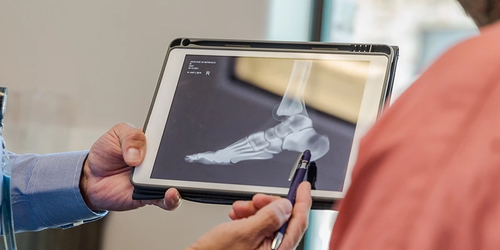Physicians & Surgeons Overview
Physicians and surgeons are at the heart of the healthcare system, serving not only as diagnosticians and healers but also as educators, researchers, and advocates for their patients. Through years of intensive education and training, they are equipped to assess complex medical issues, interpret diagnostic tests, create comprehensive treatment plans, and, in many cases, perform life-saving procedures.
There are two primary types of physicians: Allopathic doctors (MDs) and Osteopathic doctors (DOs). Both are fully licensed to diagnose conditions, prescribe treatments, and perform surgeries. DOs, however, receive additional training in the neuromusculoskeletal system and emphasize a whole-person approach to care. Also included within this professional pillar are Podiatrists (DPMs) — medical doctors who specialize in conditions of the foot, ankle, and lower leg. Though their scope is more focused, podiatrists play a crucial role in fields like sports medicine, diabetic care, and orthopedic surgery.
Physicians and surgeons work across a wide range of specialties — from primary care fields such as family medicine and pediatrics to highly specialized areas like cardiology, psychiatry, or neurosurgery. Some build long-term relationships with patients in community hospitals and clinics or private practices, while others thrive in fast-paced hospitals, surgical centers, or academic research environments. For those with a passion for advancing medical knowledge, research offers an essential avenue to explore unanswered questions in human health, develop innovative treatments, and contribute to scientific discovery. Many physicians integrate research into their clinical careers or pursue roles in academic medicine, clinical trials, or translational science.
Becoming a physician or surgeon requires a substantial educational investment — typically 11 or more years beyond high school. This includes undergraduate education, four years of medical school, and several years of residency training, with additional fellowship training for certain specialties. Despite the commitment, many in the field find the career deeply rewarding — offering intellectual challenge, personal growth, and the chance to make a lasting impact on individual lives and communities.
Whether you're drawn to general medicine, surgical innovation, cutting-edge medical research, or a specialized area like oncology or emergency medicine, this career path offers diverse and meaningful opportunities to contribute to the future of healthcare.
Learn more
- Read more about careers in medicine on AACOM’s Become a Doctor website and AAMC’s Aspiring Docs website.
- Hear from physicians, advisors, and more on the AACOM YouTube channel, and the AAMC YouTube channel.
- Learn about how to prepare for Osteopathic Medical School
- Learn more about Colleges of Osteopathic Medicine
- Learn more about the additional skillset that Osteopathic Physicians possess
- ADVISORS: Learn about resources available to you
Related Careers
The American Association of Colleges of Osteopathic Medicine has reviewed this overview.
Learn more
- Read more about careers in medicine on AACOM’s Become a Doctor website and AAMC’s Aspiring Docs website.
- Hear from physicians, advisors, and more on the AACOM YouTube channel, and the AAMC YouTube channel.
- Learn about how to prepare for Osteopathic Medical School
- Learn more about Colleges of Osteopathic Medicine
- Learn more about the additional skillset that Osteopathic Physicians possess
- ADVISORS: Learn about resources available to you


